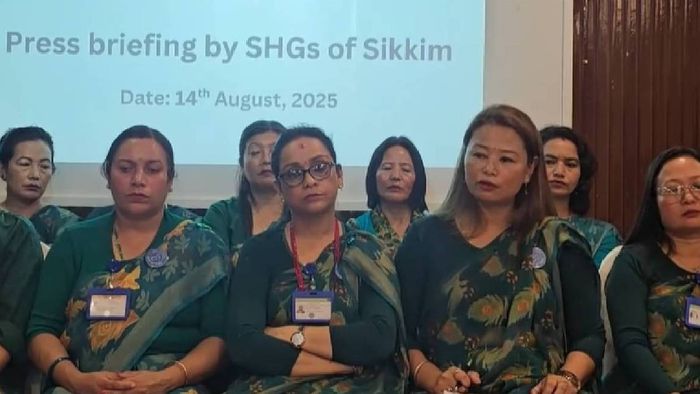Sikkim charts comprehensive path for mental health and suicide prevention: SHG Chief
Sikkim is adopting a holistic and state-specific approach to address mental health challenges and curb suicide rates, Self Help Groups (SHG) President and Public Health Engineering Department (PHE) Chairperson Chumila Bhutia announced on Thursday. She urged that the matter remain above political controversy, cautioning against personal attacks or misinterpretation of data.

- Aug 14, 2025,
- Updated Aug 14, 2025, 4:31 PM IST
Sikkim is adopting a holistic and state-specific approach to address mental health challenges and curb suicide rates, Self Help Groups (SHG) President and Public Health Engineering Department (PHE) Chairperson Chumila Bhutia announced on Thursday. She urged that the matter remain above political controversy, cautioning against personal attacks or misinterpretation of data.
“Mental health and suicide are sensitive issues that demand professional and structured handling,” Bhutia said during a media briefing. “Some of the data has been misinterpreted. This system is being developed to manage suicide cases systematically, a need that is urgent not only for Sikkim but for the entire country and the world, given the rise of suicide and non-communicable diseases.”
Bhutia underscored the necessity of a separate mental health policy for Sikkim, citing the state’s unique demographic composition. She said the Chief Minister personally reviews every input — whether telephonic or in-person — before taking decisions. The final project location has been identified, with the print version of the policy under preparation. For immediate support, residents can call Telemanas at 14416 to receive confidential counselling from qualified mental health professionals.
Highlighting progress in gender representation, Bhutia noted that women’s participation in governance and decision-making has risen sharply, with membership in relevant women’s groups increasing from 55,000 to 63,000. “Women are playing an active role in development and governance at both local and state levels,” she said.
The policy, according to Bhutia, follows a bottom-up approach, engaging students, community organisations, spiritual and religious leaders, and local representatives. It aligns with national mental health strategies while catering to local needs, involving a wide network of stakeholders — including government and non-government bodies, working committees, district collectors, LGBTQ communities, media personnel, and public representatives.
International bodies, including the World Bank, have acknowledged and appreciated Sikkim’s inclusive and locally tailored model, which is designed to be effective at the grassroots level while adaptable to wider national and global frameworks.